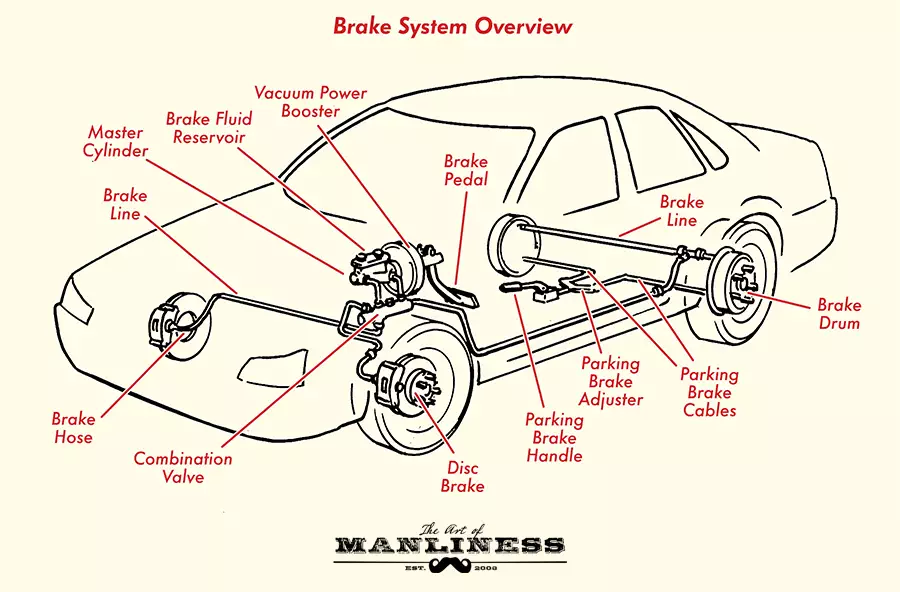
The Best Understanding Different Types of Car Fluids Tips for Every Car Owner
Have you ever wondered what keeps your car running smoothly every day? Understanding different types of car fluids is key to ensuring your vehicle operates as it should. From engine oil that lubricates moving parts to brake fluid that enables you to stop safely, various fluids play a crucial role in your car’s health. These substances are not just liquids; they are vital components of your car’s complex machinery. Each fluid has a specific job, like coolant that protects against extreme temperatures and power steering fluid that makes turning a breeze.
You might not think about these fluids often, but their importance cannot be underestimated. Imagine driving without windshield washer fluid on a rainy day or dealing with slipping gears due to low transmission fluid levels. Regularly checking and maintaining these essential fluids can prevent major repairs and keep you safe on the road. It’s not just about topping them up; it’s about knowing when and why each fluid needs attention to ensure smooth operation and longevity of your vehicle.
Ready to dive deeper into the world of car maintenance? Discover how these fluids work together to keep your vehicle in top shape. Your car is more than just a means of getting from point A to B-it’s an investment in your lifestyle. Explore further and find out how to care for your car like a pro!
In the article
Understanding Different Types of Car Fluids
Having a car is great, but it also means taking care of it. One important part of car care is knowing about essential fluids your car needs. Fluids systems fail when not checked regularly. So, let’s dive into what each of these fluids does and why they’re important for your vehicle.
Engine Oil and Brake Fluid
Engine oil is essential for your car. It keeps the engine running smoothly by lubricating moving parts. Regularly checking engine oil is important. You can do this by using the oil dipstick under the hood. If the oil level is below the minimum, add more. You should also pay attention to the color; dark oil might mean it’s time for a change.
Next, let’s talk about brake fluid. This fluid is crucial because it helps your car stop safely. Brake fluid works in the hydraulic system to transfer force from the brake pedal to the wheels. Without it, your brakes wouldn’t work properly. Make sure the fluid is between the minimum and maximum marks. If it’s low, you might have a leak, which is dangerous and needs fixing right away.
Transmission Fluid and Coolant
Transmission Fluid is another important one. It helps ensure that your gears shift smoothly. For automatic transmissions, this fluid keeps everything running without friction. You should check your transmission fluid levels according to your owner’s manual. If you notice transmission fluid leaks, address them quickly because they can lead to slipping gears and hesitation.
Coolant is essential for keeping your engine from overheating. It regulates the temperature by circulating through the engine and radiator. It’s important to maintain coolant levels properly. If you notice your car running hot or see coolant puddles, you might need to top it up or look for leaks. Remember, a well-maintained cooling system is key for the longevity of your car.
Power Steering and Windshield Washer Fluid
Power steering fluid helps you turn the wheels with ease. Without it, steering would be heavy and difficult, especially at low speeds. Make sure to check the power steering fluid levels periodically to avoid any steering issues.
Windshield washer fluid is another fluid you shouldn’t ignore. This fluid helps keep your windshield clean for a clear view, especially during rain, snow, or mud splashes. Keep the reservoir topped up to ensure you can always wash away dirt and debris.
The Role of Other Important Fluids
Besides these common fluids, your car also relies on lesser-known ones. These fluids play important roles in making sure your car works well. Let’s look at them.
Differential and Clutch Fluid
The differential fluid helps the axles of your car to function properly. This fluid keeps the gears in the differential cool and reduces friction. It’s especially important in cars with rear or all-wheel drive. Make sure to check your differential fluid levels during service appointments to avoid unnecessary wear.
Then, there’s clutch fluid, found in manual cars. This fluid is crucial for smooth gear shifts. If you find it difficult to shift gears, you might need to check the clutch fluid level. Any issues with the clutch fluid could lead to more severe transmission problems if not taken care of.
Axle Fluid and Gear Oil
Axle fluid, like differential fluid, ensures the axles rotate properly. This is essential for your car to move efficiently. Any strange noises from your axles could mean low fluid levels, which you should have checked to prevent damage.
Gear Oil Maintenance Tips
Gear oil is another important fluid. It protects your transmission by keeping gears lubricated. Regularly changing gear oil is a good habit. Usually, gear oil doesn’t need changing often, but it’s best to consult your manual for specific intervals. Regular oil changes can help avoid major repairs down the road.
Understanding different types of car fluids is key to keeping your vehicle in top shape. Make it a habit to check these fluids regularly, and don’t hesitate to address any issues. A well-maintained car is safer, lasts longer, and can save you money in the long run. So, take the time to understand your car’s needs and enjoy a smooth ride every time you hit the road!
Drive Smoothly with the Right Car Fluids
Taking care of your car with the right fluids ensures smooth and safe driving. Each fluid, from engine oil to transmission fluid, plays a key role in keeping your car running well. They help lubricate and protect various parts, making sure your vehicle operates smoothly and lasts longer. Understanding these fluids saves you from unexpected breakdowns and costly repairs down the road.
Start by regularly checking your car’s fluid levels. Ensure you have enough brake fluid, coolant, and power steering fluid at all times. Consult your car manual for the recommended types of fluids and their optimal levels. Scheduling milestone service appointments with a trusted mechanic will also keep everything in check and ensure any potential issues are caught early.
Now is the time to take charge of your car’s maintenance. Check your fluids today and make a list of any that need topping up or replacing. Remember, a few minutes now can save you hours of trouble in the future. Take action and enjoy peace of mind on the road!







